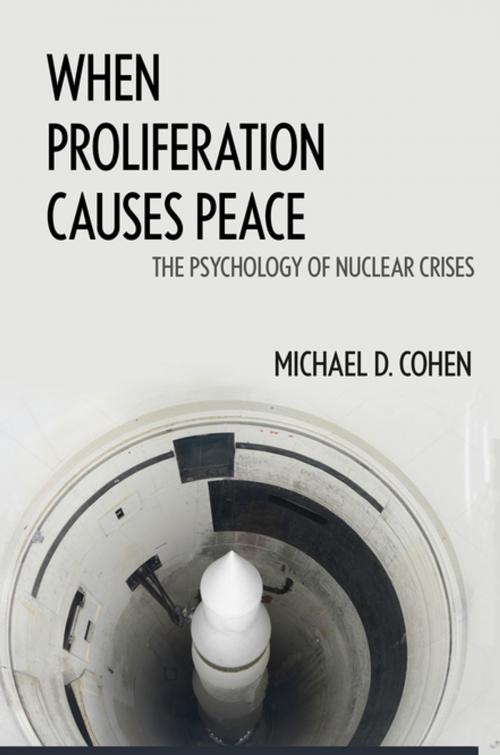When Proliferation Causes Peace
The Psychology of Nuclear Crises
Nonfiction, Social & Cultural Studies, Political Science, Politics, Arms Control, History, Military, Nuclear Warfare, International, International Security| Author: | Michael D. Cohen | ISBN: | 9781626164963 |
| Publisher: | Georgetown University Press | Publication: | December 1, 2017 |
| Imprint: | Georgetown University Press | Language: | English |
| Author: | Michael D. Cohen |
| ISBN: | 9781626164963 |
| Publisher: | Georgetown University Press |
| Publication: | December 1, 2017 |
| Imprint: | Georgetown University Press |
| Language: | English |
Does state acquisition of nuclear weapons lead to stability and peace or instability and crises? This is one of the great debates in international relations scholarship. Michael D. Cohen argues that nuclear weapons acquisition often does dangerously embolden the acquiring state to undertake coercion and aggression, but that this behavior moderates over time as leaders learn the dangers and limitations of nuclear coercion. This book examines the historical cases of the Soviet Union and Pakistan in depth and also looks at mini-cases involving the United States, China, and India. This book broadens our understanding of how leaders and states behave when they acquire nuclear weapons and is important reading for scholars and students of international relations, security studies, and political psychology.
Does state acquisition of nuclear weapons lead to stability and peace or instability and crises? This is one of the great debates in international relations scholarship. Michael D. Cohen argues that nuclear weapons acquisition often does dangerously embolden the acquiring state to undertake coercion and aggression, but that this behavior moderates over time as leaders learn the dangers and limitations of nuclear coercion. This book examines the historical cases of the Soviet Union and Pakistan in depth and also looks at mini-cases involving the United States, China, and India. This book broadens our understanding of how leaders and states behave when they acquire nuclear weapons and is important reading for scholars and students of international relations, security studies, and political psychology.















